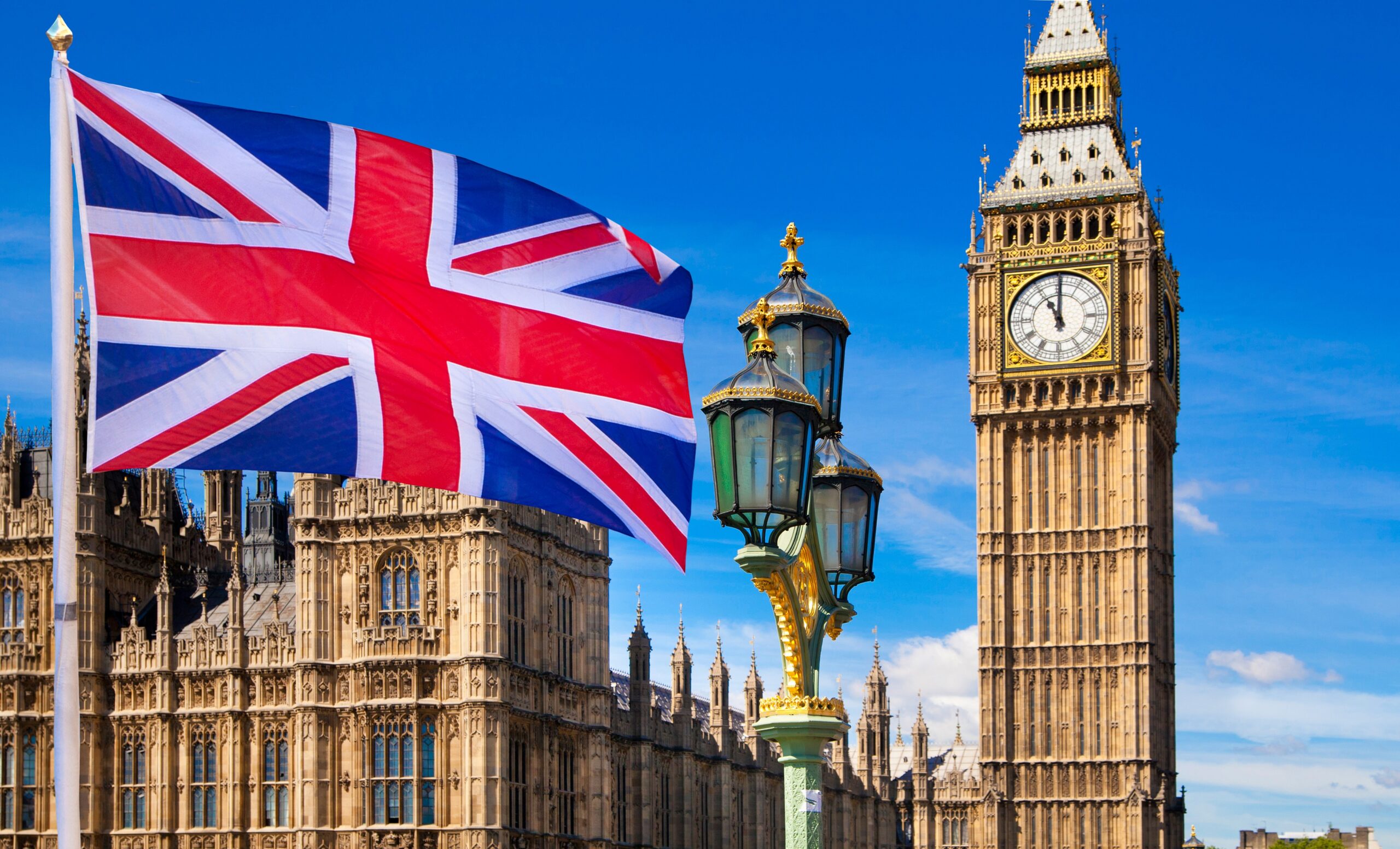
Biggest Ever Change in the British Nationality from 10 February 2025
Changes to the Home Office’s guidance on good character will significantly impact those seeking citizenship from 10 February 2025. A person who applies for citizenship after this date, who has previously entered the UK illegally, will normally be refused citizenship. This policy affects many individuals, including those who have made a dangerous journey or were travelling by small boat. For example, a person who entered illegally 14 years ago, who has since been granted refugee status, could find their British citizenship application refused due to their illegal entry. The new rules stipulate that anyone who enters the UK illegally will normally require refusal of citizenship, irrespective of their contributions to society or character issues during their residency.
The British public may also be affected by these changes, as they reflect a growing concern regarding the treatment of refugees. Many believe that refugees who have been given asylum should not be penalized for their past actions, particularly when they were fleeing danger. However, the Home Office maintains that these measures are essential to preserve the integrity of British citizenship. As a result, a person applying for citizenship who has previously arrived illegally will face significant hurdles in their quest for British citizenship. The implications of these changes may be far-reaching, as they redefine the pathway to nationality for many individuals seeking a new life in the UK.
What is the New Good Character Guidance for Citizenship?
The New Good Character Guidance for Citizenship introduces stringent measures for individuals applying for citizenship as a British citizen from 10 February 2025. This guidance specifically targets those who have previously arrived in the UK without a required valid entry clearance or electronic travel authorisation, including those who made a dangerous journey via small boat or were concealed in a vehicle. The guidance states that anyone who entered the UK illegally, such as a person arriving illegally from another country, would typically face refusal of naturalization as a British citizen.
For example, an individual who arrived without a required valid entry clearance and who subsequently gained refugee status after arriving illegally 14 years ago would normally require denial of their citizenship application. This rule emphasizes the UK’s commitment to maintaining strict border control, as the British public increasingly expresses concerns over illegal entry. The guidance further strengthens measures outlined in the Nationality Act, ensuring that those with a history of illegal entry are held accountable, regardless of the time elapsed since their entry.
Understanding Good Character Requirements in Immigration
Understanding good character requirements in immigration is crucial for individuals applying for citizenship. For example, an individual who applies for citizenship from 10 February 2025 and has previously arrived without a required valid entry clearance or electronic travel authorisation may face challenges. If they made a dangerous journey, such as arriving concealed in a vehicle or by small boat, the guidance states that such actions could jeopardize their application. The British public want refugees to be assessed fairly, but those who arrived illegally 14 years ago would normally require refusal of their application for naturalization as a British citizen.
Furthermore, the Nationality Act already has provisions that can prevent individuals with a history of illegal entry from gaining citizenship. The recent guidance further strengthens measures against those who may have arrived without a required valid entry clearance. For instance, an individual who has faced scrutiny due to their illegal entry would normally be unable to obtain a British passport, regardless of the time elapsed since their arrival.
How Does Good Character Affect Refugee Applications?
Good character plays a crucial role in the refugee application process, especially for those who applies for citizenship from 10 February 2025 who has previously arrived in the UK. Many refugees, who may have made a dangerous journey on a small boat or concealed themselves to enter, face significant hurdles when seeking citizenship as an illegal entrant. For individuals that have previously arrived without a required visa, the British public want refugees to be assessed fairly, yet would normally require refusal of their applications. The illegal entry took place often complicates their path towards indefinite leave to remain, even if they are subsequently granted refugee status and recognized as a victim of trafficking and subsequently helped by organizations like Paddington Bear.
In light of changing regulations, the government has said the change aims to prevent those arriving illegally from gaining citizenship. However, it is vital to make it clear that anyone who has faced exploitation should not be penalized for their illegal entry if they have proven their worthiness for protection. This delicate balance is essential in ensuring that victims receive the support they need while maintaining the integrity of the immigration system.
Implications of Good Character Guidance on Asylum Seekers
In February 2025, it was announced that new implications for asylum seekers would be established, specifically for those who has previously arrived in the UK. The government aims to address the challenges faced by individuals who undertake a dangerous journey that includes traveling by small boat or concealed methods. Many of these individuals, having entered the UK illegally, find themselves at risk of being classified as an illegal entrant, which complicates their paths to citizenship.
To counter this, the government has already recognized that there are rules that can prevent those arriving illegally from gaining citizenship. However, the recent changes make it clear that anyone who has been recognised as a victim of trafficking and subsequently granted refugee status could be eligible for indefinite leave to remain. This shift signifies a more compassionate approach, aiming to provide protection for those who have acquired any other notable adverse circumstances, rather than simply penalizing illegal entry.
Who Will Be Affected by the Good Character Guidance?
From 10 February 2025, new measures to make it clear who will be affected by the Good Character Guidance will reshape the path to registration as a British citizen. This initiative will impact those who come to the UK seeking refuge or a better life, particularly individuals who have undertaken a dangerous journey to arrive here. While the UK has already rules that can prevent individuals with questionable backgrounds from obtaining citizenship, the guidance aims to ensure that each entrant but has been recognised as a person of good standing can integrate into and contribute positively to society.
People already in the UK will also feel the effects, as those who may have previously been on the path to grant citizenship could be refused citizenship if they entered under dubious circumstances. The focus remains on ensuring that each applicant is of good character, as this not only enhances security but also encourages individuals to contribute to their new communities and ultimately strengthens the fabric of British society. Thus, the measures to make citizenship equitable and just are essential for fostering a harmonious environment for all.
Citizenship Applications from Those Who Entered the UK Illegally
Recent discussions around citizenship applications from individuals who entered the UK illegally have raised significant concerns. Many of these applicants have undertaken a dangerous journey to reach safety, seeking refuge from perilous conditions in their home countries. Once given safety in our country, these individuals often aspire to naturalize as a British citizen. However, a labour MP has warned that reforms made from 10 February 2025 will strengthen measures to make it more challenging for those who have not lived in the UK legally to acquire UK citizenship.
Under the proposed changes, it will be clear that anyone who enters the UK illegally may potentially be denied British citizenship, regardless of their circumstances. This is particularly concerning for individuals who have been a person granted refugee status or have previously granted refugee status. The assessment of an applicant’s good character will play a crucial role, and those who haven’t acquired any other notable legal standing may find their paths to becoming a British citizen significantly hindered. The ongoing debate underscores the complexities of immigration policy and the need for compassionate consideration of those seeking a new life in the UK.
Impact on Refugees Seeking British Citizenship
For many refugees, the quest for British citizenship begins with a perilous and often dangerous journey that includes fleeing their home countries due to conflict, persecution, or violence. These individuals often arrive outside the UK, navigating through treacherous conditions and uncertain circumstances in hopes of finding safety and a new life.
Upon arriving in the UK, the process of obtaining residency and eventually citizenship can be daunting. However, those who have successfully got British citizenship often find that this achievement significantly enhances their prospects for stability and integration into British society.
Becoming a British citizen has helped many refugees access essential services, secure employment, and build a sense of belonging in their new home. This transformation not only impacts their lives but also contributes positively to the diverse and multicultural fabric of the UK.
Labour MP Reactions to the New Guidelines
Labour MPs have expressed strong concerns regarding the new guidelines, which they believe could lead to dire consequences for vulnerable individuals. Many have pointed out that the dangerous journey includes various risks, especially for those seeking asylum outside the UK. These journeys often involve perilous conditions that can threaten lives and well-being.
Furthermore, MPs argue that the guidelines undermine the rights of individuals who have successfully navigated the system and got British citizenship. They emphasize that every British citizen has helped enrich the nation, and policies that deter newcomers could lead to a loss of diversity and innovation within society.
In light of these concerns, Labour representatives are calling for a reassessment of the guidelines to ensure that they prioritize humanitarian principles and uphold the values of compassion and inclusivity that define the UK. They believe it is essential to foster a welcoming environment for those in need.
How Will Illegal Entry Influence Citizenship Applications?
Illegal entry into a country can significantly influence citizenship applications, often complicating the process for individuals seeking legal status. When applicants have a history of unauthorized entry, it may raise red flags during the evaluation of their applications. Immigration authorities typically scrutinize such cases more closely, assessing the circumstances surrounding the illegal entry and any subsequent actions taken by the applicant.
Moreover, individuals who have entered a country illegally may face disqualification from citizenship due to specific laws and regulations. In many jurisdictions, a period of lawful residency is required before an individual can apply for citizenship, and illegal entry can disrupt this timeline. This can lead to prolonged uncertainty and stress for applicants, as they navigate the complexities of immigration law while hoping to secure their place in society.
Ultimately, the impact of illegal entry on citizenship applications highlights the importance of understanding immigration policies and seeking legal counsel when necessary. By addressing these issues proactively, individuals may improve their chances of a successful application and eventual citizenship.
Consequences of Entering the UK Illegally
Entering the UK illegally can lead to severe and lasting consequences for individuals. Firstly, those who are caught may face immediate detention by immigration authorities, often resulting in a prolonged stay in holding facilities while their cases are processed. This detention can be both physically and mentally taxing, impacting the individual’s well-being.
Moreover, illegal entry often results in a ban on re-entry to the UK for a specified period, which can hinder future travel plans and opportunities. Furthermore, individuals found to be residing in the UK without proper documentation may face deportation, stripping them of the chance to build a life in the country.
Additionally, those living illegally may struggle to access basic services, such as healthcare or education, as they are often ineligible for public assistance. This lack of support can lead to a cycle of poverty and marginalization, making it increasingly difficult to secure a stable future.
Refusal of British Citizenship for Illegal Entrants
The refusal of British citizenship for illegal entrants has become a contentious issue in the UK. Authorities argue that granting citizenship to individuals who have entered the country unlawfully undermines the integrity of the immigration system. This policy is designed to deter unlawful migration and maintain public confidence in the legal pathways to residency and citizenship.
By implementing strict measures against illegal entrants, the UK government aims to reinforce the importance of adhering to immigration laws. Those who are found to have breached these laws face significant consequences, including the inability to apply for British citizenship. Critics of this approach argue that it can lead to harsh consequences for vulnerable individuals who may have fled dangerous circumstances.
Ultimately, the balance between enforcing immigration laws and ensuring humanitarian considerations remains a complex challenge for policymakers, reflecting broader societal debates about citizenship and belonging.
Examples of Notable Adverse Character Issues
Adverse character issues can significantly impact an individual’s reputation and relationships. One notable example is fraud, where individuals deceive others for personal gain, often resulting in legal consequences and loss of trust. Another example is abuse, whether emotional or physical, which not only harms victims but also tarnishes the abuser’s character and credibility within their community.
Additionally, dishonesty in professional settings can lead to career setbacks and damaged relationships with colleagues. This includes not only lying but also plagiarism, which undermines integrity and can have severe academic or professional repercussions. Such adverse character issues can create lasting effects on an individual’s life, affecting both personal and professional aspects.
Moreover, addiction can also be a significant character flaw, impacting personal relationships and responsibilities. It often leads to a cycle of irresponsibility and can alienate friends and family, making recovery challenging and complicated.
What Does This Mean for Future Applicants?
For future applicants, the recent changes in the admission process carry significant implications. Firstly, the emphasis on holistic evaluation means that candidates will need to showcase not just their academic achievements but also their extracurricular involvement and personal qualities. This shift encourages a more well-rounded application, highlighting the importance of diversity in experiences and perspectives.
Additionally, applicants should be prepared for a more competitive landscape. With more weight placed on soft skills and unique narratives, standing out will require creativity and authenticity. Future candidates must focus on crafting compelling stories that reflect their individual journeys and aspirations.
Moreover, the integration of technology in the application process suggests that prospective students should become familiar with online platforms and tools used for submissions. Understanding these resources can streamline the application experience and enhance their presentation.
Changes to the Citizenship Application Process from February 2025
The Citizenship Application Process is set to undergo significant changes starting in February 2025. These changes aim to streamline the application procedure and enhance accessibility for potential citizens. One of the most notable adjustments includes the introduction of a digital submission system, allowing applicants to submit their documents online, which is expected to reduce processing times and improve overall efficiency.
Additionally, the new process will incorporate community-based workshops designed to educate applicants about the requirements and procedures. These workshops will provide vital information on documentation, eligibility criteria, and interview preparation, thereby empowering applicants throughout their journey.
Furthermore, the eligibility criteria will be refined to better reflect the diverse backgrounds of applicants. This includes recognizing alternative forms of residency and expanding the definitions of familial connections, making the process more inclusive for a wider range of individuals seeking citizenship.
Understanding the Refusal Rates for Illegal Entrants
Understanding the refusal rates for illegal entrants is crucial for policymakers and law enforcement agencies. These rates reflect how many individuals attempting to enter a country without authorization are denied entry or asylum. Analyzing these statistics can reveal underlying trends, such as the effectiveness of border control measures and the impact of international relations on migration patterns.
Moreover, refusal rates can be influenced by various factors, including legal frameworks, economic conditions, and socio-political climates in both the home and host countries. For instance, a rise in violence or economic hardship in a country may lead to increased migration attempts, subsequently affecting the refusal rates.
Understanding these dynamics can aid in formulating more effective immigration policies that balance humanitarian concerns with the need for national security. By examining refusal rates, authorities can better address the challenges posed by illegal immigration and develop strategies that are both just and practical.
Advice for Individuals Applying for Citizenship
Applying for citizenship can be a daunting process, but with the right preparation, you can navigate it successfully. First, ensure that you meet all the eligibility criteria, such as residency requirements and language proficiency. Familiarize yourself with the documentation needed, including proof of residency and identification, to avoid delays.
Next, consider attending a citizenship preparation class. These classes often cover essential topics like the naturalization interview and the civics test, boosting your confidence and knowledge. Practicing your interview skills with a friend or family member can also be beneficial.
Lastly, stay organized and keep track of all deadlines. Submit your application as early as possible, and don’t hesitate to seek assistance from legal experts or local organizations specializing in immigration services. Being proactive and informed will make your journey to citizenship smoother.
Are There Exceptions to the Good Character Requirement?
In many legal systems, the good character requirement serves as a cornerstone for assessing an individual’s suitability for various roles or privileges, such as immigration, employment, or licensing. However, there are notable exceptions to this rule that can significantly impact its application. For instance, individuals who have demonstrated significant rehabilitation or those who were victims of circumstances beyond their control may receive leniency in character evaluations.
Additionally, some jurisdictions may allow for a case-by-case analysis, where mitigating factors are considered, potentially overriding a negative assessment of character. This means that a person with a past conviction might still gain acceptance if they can prove their current positive contributions to society. Ultimately, while the good character requirement is essential, understanding its exceptions is crucial for fostering a more just and equitable system.
Possible Waivers for Refugees and Asylum Seekers
Waivers for refugees and asylum seekers can play a critical role in facilitating their resettlement and integration into host countries. These waivers often allow individuals to bypass certain legal barriers that would otherwise impede their access to protection and resources. For instance, many refugees may have been involved in activities that could render them inadmissible, such as membership in a particular group or participation in specific incidents. Legal frameworks in various countries provide mechanisms for these individuals to apply for waivers, enabling them to demonstrate their eligibility for asylum despite these challenges.
Additionally, humanitarian waivers can be granted based on compelling factors, such as the potential for family reunification or the presence of severe medical conditions. Such provisions not only uphold the rights of vulnerable populations but also reflect a commitment to international refugee protection standards. Ultimately, ensuring that these waivers are accessible and effectively implemented is crucial for the well-being and stability of refugees and asylum seekers in their new environments.
Judicial Review of Good Character Decisions
Judicial review of good character decisions plays a crucial role in ensuring fairness and accountability within the legal system. This process allows individuals to challenge determinations made by administrative bodies regarding their character suitability for various legal processes, such as immigration applications or professional licensing. The review assesses whether the decision was made in accordance with the law, considering factors like procedural fairness and the adequacy of evidence presented.
In such cases, the courts may examine whether the decision-maker adhered to established guidelines and whether the individual’s rights were respected throughout the process. If a good character decision is found to be flawed, the court can quash the decision and potentially order a re-evaluation. This mechanism serves as a vital check on the exercise of discretion, ensuring that decisions are not only lawful but also just and equitable, thereby reinforcing public confidence in the legal system.
Public Sentiment on Refugees Gaining Citizenship
Public sentiment regarding refugees gaining citizenship has become a contentious issue in many countries. Some citizens advocate for the rights of refugees, emphasizing the importance of inclusivity and the benefits that a diverse society can bring. These supporters argue that granting citizenship fosters a sense of belonging and encourages refugees to contribute positively to their new communities.
Conversely, there are segments of the population that express concern over the potential economic and social impacts of integrating refugees into the fabric of society. Critics often cite fears of job competition and strain on public services as reasons to limit citizenship opportunities for refugees.
Ultimately, the debate is shaped by a complex interplay of humanitarian values, economic considerations, and national identity, making the public sentiment on this issue both dynamic and multifaceted.
How Can Individuals Navigate the New Citizenship Landscape?
In today’s globalized world, individuals must navigate a complex citizenship landscape shaped by changing laws and policies. To effectively engage with this landscape, one should start by understanding their rights and responsibilities as a citizen. This includes being informed about local, national, and international regulations that can affect their status.
Additionally, leveraging digital resources such as online platforms, forums, and legal services can provide valuable guidance. These tools can assist individuals in staying updated on relevant changes and connecting with others who share similar experiences.
Moreover, active participation in community initiatives fosters a sense of belonging and helps individuals to advocate for inclusive policies. By engaging with local organizations and attending civic meetings, they can influence decision-making processes that impact their lives.
Ultimately, navigating the new citizenship landscape requires a proactive approach, informed decision-making, and a commitment to community engagement.
Steps to Take When Applying for Citizenship
When applying for citizenship, the first step is to determine your eligibility. This usually involves meeting certain requirements such as residency duration, language proficiency, and good moral character. Once you confirm your eligibility, the next step is to complete the necessary application form, typically the Form N-400 in the United States. Make sure to gather all required documentation, including proof of residency and legal status.
After submitting your application, you will need to pay the associated fees and wait for your application to be processed. During this time, you may be scheduled for a biometrics appointment where your fingerprints will be taken. Following this, you will be scheduled for an interview where an immigration officer will ask you questions about your application and test your knowledge of the country’s history and government.
If you pass the interview, the final step is to attend the oath ceremony, where you will take an oath of allegiance, officially becoming a citizen. It’s essential to stay informed throughout the process and respond promptly to any requests from the immigration office.
Resources for Legal Assistance in Immigration
Navigating the complexities of immigration law can be challenging, but there are numerous resources available for those seeking legal assistance. Many organizations provide pro bono services, offering free or low-cost legal representation to individuals facing immigration issues. For example, the American Immigration Lawyers Association (AILA) has a directory of qualified immigration attorneys who specialize in various aspects of immigration law.
Additionally, community-based organizations often host workshops and legal clinics, where individuals can receive information on their rights and the immigration process. Websites like the Immigration Advocates Network provide access to a range of legal resources, including self-help tools and guides tailored to specific immigration situations.
It is also crucial to stay informed about local laws and regulations, as they can vary widely by state. Utilizing these resources can empower individuals to make informed decisions regarding their immigration status.
Understanding Your Rights as a Refugee
Understanding your rights as a refugee is crucial for navigating the complexities of asylum and resettlement processes. Refugees are entitled to seek protection from persecution and are afforded specific legal protections under international law. This includes the right to not be returned to a country where they face serious threats to their life or freedom, known as the principle of non-refoulment.
Additionally, refugees have the right to access essential services, such as healthcare, education, and legal assistance. These entitlements aim to ensure that refugees can rebuild their lives in safety and dignity. It is important to be aware of the local laws and regulations that may impact these rights, as they can vary significantly from one country to another.
Engaging with organizations that support refugees can provide valuable resources and information about your rights. Advocacy groups often offer guidance on how to assert and protect these rights effectively, helping refugees to integrate into their new communities.
CONTACT US
Contact us using our contact form by selecting a service from the drop down list below.






